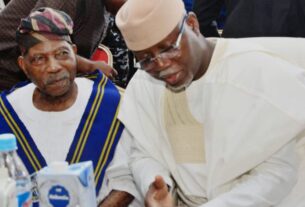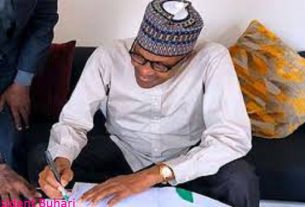President Muhammadu Buhari has signed the controversial Petroleum Industry Bill 2021 into law, implying that he accepts the three per cent allocation to petroleum hosting communities which had stalled the passage of the bill in July after over a decade.
This came weeks after the National Assembly passed the bill amid heated debates
This was confirmed by the President’s spokesperson, Mr Femi Adesina, who said in a statement that the president signed the bill at his home where he is observing a five-day “quarantine as required by the Presidential Steering Committee on COVID-19 after returning from London on Friday August 13”.
He said that “…the President assented to the Bill Monday August 16, in his determination to fulfill his constitutional duty,” adding that: “The ceremonial part of the new legislation will be done on Wednesday, after the days of mandatory isolation would have been fulfilled.”
The Senate had passed the bill on July 15 while the House of Representatives followed suit on July 16. The act is expected to replace the obsolete Petroleum Act of 1969.
The PIB was first brought to the National Assembly in 2008 but it faced several obstacles while undergoing numerous revisions and debates.
There was some progress in 2015 when the House of Representatives passed a version, but it didn’t go through at the Senate.
In 2015, the Buhari administration proposed passing the PIB in various segments, forming four separate bills (Petroleum Industry Governance Bill, Fiscal Regime Bill, Upstream and Midstream Administration Bill, Petroleum Host Communities Bill).
A hot debate at the National Assembly over allocation to host communities last month typified the contentious nature of the bill.
Now the Petroleum Industry Act provides legal, governance, regulatory and fiscal framework for the Nigerian petroleum industry, the development of host communities, and related matters.
The contentious bill had remained at the National Assembly for more than a decade, with successive sessions of the Senate and House of Representatives failing to approve its provisions of sweeping reforms for the oil and gas sector.
Its eventual passage on July 15 was dimmed by a controversy over the allocation of three per cent revenue to host communities in the Niger Delta, while a fund for the exploration of oil in frontier basins, mostly in northern states, received 30 per cent.
This quota, considered grossly unjust, was rejected by the Southern Governors’ Forum and leaders of the South-south region, including a former minister and prominent leader in the Niger Delta, Edwin Clark.
Besides, representatives of the area had demanded 10 per cent, or in the minimum, five per cent as earlier passed by the House of Representatives.
But the National Assembly leadership under the Senate president, Ahmad Lawan, brushed aside the concerns and harmonised the bill, ready for presidential assent.





